Filter by
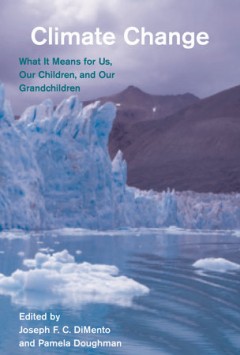
Climate Change :What It Means for Us, Our Children, and Our Grandchildren
"This revised and updated collection of essays on climate change incorporates the latest scientific research and policy initiatives on the subject. It describes recent major legislative actions, analyzes alternative regulatory tools (including new uses of taxes and markets), offers increased coverage of China and other developing nations, discusses the role of social media in communicating abou…
- Edition
- Second edition.
- ISBN/ISSN
- 9780262322300
- Collation
- 1 online resource (xiii, 343 pages) :illustrations.
- Series Title
- -
- Call Number
- -
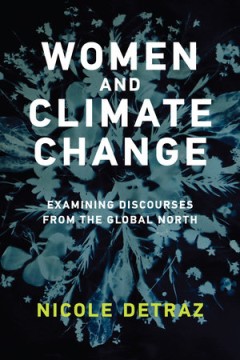
Women and climate change :examining discourses from the Global North
"This book investigates how women have been cast with regard to climate change science and policy-making, such as roles as victims, drivers of change, laborers, and saviors"--OCLC-licensed vendor bibliographic record.
- Edition
- -
- ISBN/ISSN
- 9780262372664
- Collation
- 1 online resource
- Series Title
- -
- Call Number
- -
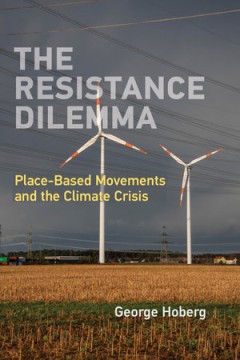
The resistance dilemma :place-based movements and the climate crisis
"The book focuses on a strategic choice by the North American wing of the global climate movement: to ally themselves with place-based interests, including Indigenous groups, to block new coal plants, coal port expansion, fracking, and more recently, oil sands pipelines. The strategy by climate activists to target fossil fuel infrastructure has been effective at movement building and driving po…
- Edition
- -
- ISBN/ISSN
- 9780262367158
- Collation
- 1 online resource.
- Series Title
- -
- Call Number
- -
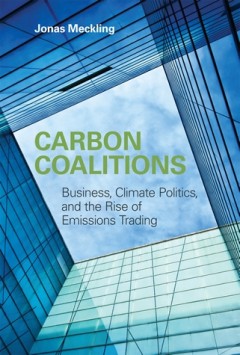
Carbon coalitions :business, climate politics, and the rise of emissions trading
An examination of how a transnational coalition of firms and NGOs influenced the emergence of emissions trading as a central component of global climate governance.Over the past decade, carbon trading has emerged as the industrialized world's primary policy response to global climate change despite considerable controversy. With carbon markets worth $144 billion in 2009, carbon trading represen…
- Edition
- -
- ISBN/ISSN
- 9780262298889
- Collation
- 1 online resource (x, 250 pages) :illustrations
- Series Title
- -
- Call Number
- -
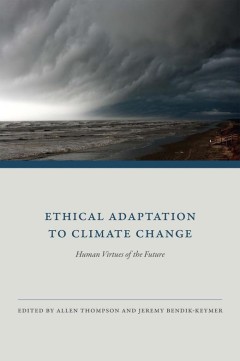
Ethical adaptation to climate change :human virtues of the future
Predictions about global climate change have produced both stark scenarios of environmental catastrophe and purportedly pragmatic ideas about adaptation. This book takes a different perspective exploring the idea that the challenge of adapting to global climate change is fundamentally an ethical one.OCLC-licensed vendor bibliographic record.
- Edition
- -
- ISBN/ISSN
- 9780262301541
- Collation
- 1 online resource
- Series Title
- -
- Call Number
- -
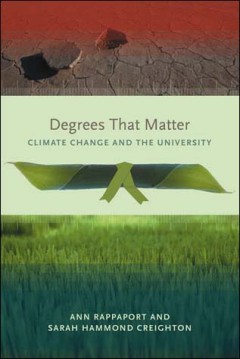
Degrees that matter: climate change and the university
Explains how members of college and university communities can take action on climate change: strategies, projects, and lessons in how to motivate complex organizations to make changes.OCLC-licensed vendor bibliographic record.
- Edition
- -
- ISBN/ISSN
- 9780262282086
- Collation
- 1 online resource (xviii, 372 pages) :illustrations.
- Series Title
- -
- Call Number
- -
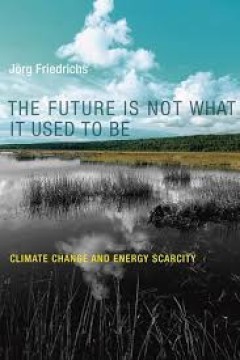
The future is not what it used to be : climate change and energy scarcity
"The future is not what it used to be because we can no longer rely on the comforting assumption that it will resemble the past. Past abundance of fuel, for example, does not imply unending abundance. Infinite growth on a finite planet is not possible. In this book, J?org Friedrichs argues that industrial society itself is transitory, and he examines the prospects for our civilization's coming …
- Edition
- -
- ISBN/ISSN
- 9780262316620
- Collation
- 1 online resource
- Series Title
- -
- Call Number
- -
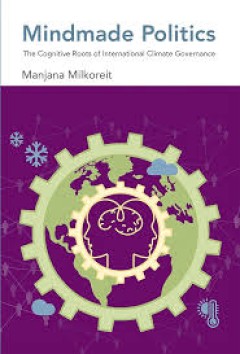
Mindmade politics the cognitive roots of international climate governance
How integrating cognitive theories and international relations scholarship can yield valuable insights into the effectiveness of climate negotiations. Mindmade Politics takes a novel, interdisciplinary approach to understanding the complex and contentious dynamics of global climate politics. Manjana Milkoreit argues that integrating cognitive theories and international relations scholarship can…
- Edition
- -
- ISBN/ISSN
- 9780262340588
- Collation
- 1 online resource (352 pages)
- Series Title
- -
- Call Number
- -
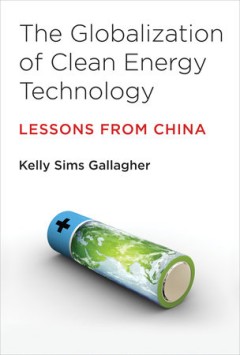
Titans of the climate : explaining policy process in the United States and China
How the planet's two largest greenhouse gas emitters navigate climate policy. The United States and China together account for a disproportionate 45 percent of global carbon dioxide emissions. In 2014, then-President Obama and Chinese President Xi Jinping announced complementary efforts to limit emissions, paving the way for the Paris Agreement. And yet, with President Trump's planned withdrawa…
- Edition
- -
- ISBN/ISSN
- 0262349183
- Collation
- 1 online resource (272 pages).
- Series Title
- -
- Call Number
- -
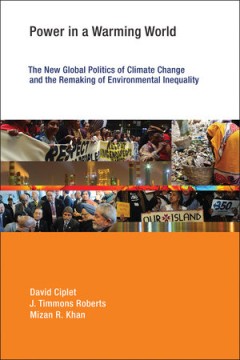
Power in a warming world :the new global politics of climate change and the r…
After nearly a quarter century of international negotiations on climate change, we stand at a crossroads. A new set of agreements is likely to fail to prevent the global climate's destabilization. Islands and coastlines face inundation, and widespread drought, flooding, and famine are expected to worsen in the poorest and most vulnerable countries. How did we arrive at an entirely inequitable a…
- Edition
- -
- ISBN/ISSN
- 9780262330039
- Collation
- 1 online resource.
- Series Title
- -
- Call Number
- -
 Computer Science, Information & General Works
Computer Science, Information & General Works  Philosophy & Psychology
Philosophy & Psychology  Religion
Religion  Social Sciences
Social Sciences  Language
Language  Pure Science
Pure Science  Applied Sciences
Applied Sciences  Art & Recreation
Art & Recreation  Literature
Literature  History & Geography
History & Geography